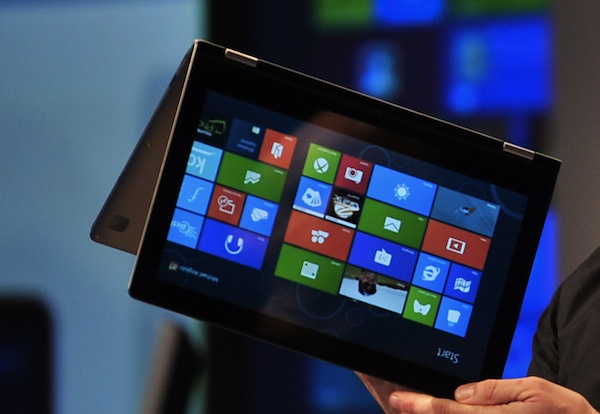Metro apps on Windows 7 is a bad, bad idea

As we move closer to the launch of Windows 8 -- and the sea change that the Metro user interface brings to the platform -- there's an ever increasing drumbeat of both skepticism, concern, and apprehension depending on who you talk to.
End users are skeptical of Metro because they do not see its value. The interface completely changes how we interact with Windows, and in some cases will confuse us. I point you to this video of tech pundit Chris Pirillo's father attempting to use Windows 8 for the first time without instruction as an example. Microsoft may have unintentionally added an extra layer of complexity in an effort to simplify the OS.
Enterprise users are concerned with compatibility. Look at how long it has taken Microsoft to cajole the enterprise, corporate and institutional customers to upgrade from Windows XP, now 11 years old. They like the familiar, and XP was the last operating system from Microsoft to achieve broad global adoption. Metro is completely different. Will my mission-critical apps work with Windows 8 and Metro?
And then you have the pundits. There is now apprehension appearing among these folks that just not enough development is happening around Metro, and that signals trouble for Windows 8 overall. At least that's what ZDNet's Adrian Kingsley-Hughes claims in his piece for ZDNet on Friday. His argument? With so few Metro apps appearing in the Windows Store (99 to be exact), it's time for Microsoft to start stimulating development. The solution? Bringing Metro to Windows 7 and even Vista.
While I can understand Hughes' concern about what is one of the biggest shifts in the Windows ecosystem in its history, it is extraordinarily foolish to suggest Microsoft take the crown jewel of Windows 8 and spread it far and wide. Reasons:
1. Windows users need to upgrade. As I mentioned previously, many Windows users do not upgrade. Metro on Windows 8 gives users a reason to move up, much like the enhancements in usability in Windows XP made that platform so attractive to the end user. Allowing Metro apps to run on Windows 7 or even Vista takes away that pressure to upgrade, and Microsoft's in the same position it's been in for years trying to figure out a way to get its users with the times.
2. The number of Metro apps in Windows Store is meaningless. Windows 8 does not release until October. Developers of Metro apps at this point have little to gain in developing for the platform yet, as the only end users that will actually use these apps are those who have downloaded the Consumer Preview. That's a minuscule portion of the Windows ecosystem at this point. Actually, 99 apps for a platform that technically isn't public yet is impressive.
3. Developers don't need to show their hand. There's another reason why Metro apps will be scarce until launch, and that's competitive edge. Just like on iOS and Android, developers choose not to publicly demo their work. Metro is innovative and allows developers to be equally so. Why possibly give your competitors a heads up on your work six months before it is going to matter? It makes no sense at all.
4. Windows 8 is built for Metro, Windows 7 and Vista were not. Microsoft developers have built Windows 8 from the ground up with the Metro interface in mind. You're not going to get the same experience attempting to add it as an afterthought to previous operating systems. There's another big issue, and that's security. Metro for earlier operating systems would act much like a plug-in. What's one of the leading ways attackers gain access into Windows? That's right, plug-ins -- and that's exactly what Kingsley-Hughes is advocating for.
5. Microsoft must appear confident in its choice. Windows 8 is a big jump for Redmond. Microsoft is putting its collective neck out there in pushing a big change in the way Windows works, considering its dominant position in the market. If the company all of a sudden decides to backport Metro, it gives the appearance of weakness. Negative publicity is not what Microsoft needs.
6. The Windows Store favors Metro. Microsoft is putting Metro front and center in the Windows Store. If you want good distribution from Microsoft itself, you're going to create a Metro app. Developers know this, and in time more Metro apps will appear in the store. But now is just not the time, because it doesn't really matter.
Microsoft is doing the right thing in making Metro a Windows 8-only playground. It takes massive changes like this to get people excited and to wake up and notice. Turning back the clock and letting everyone else in makes no sense. Yes, maybe we should start getting folks excited about what Metro can do, but this is not the way to do it.
A good advertising program, akin to Windows 95's "Start Me Up", will be just as effective.
